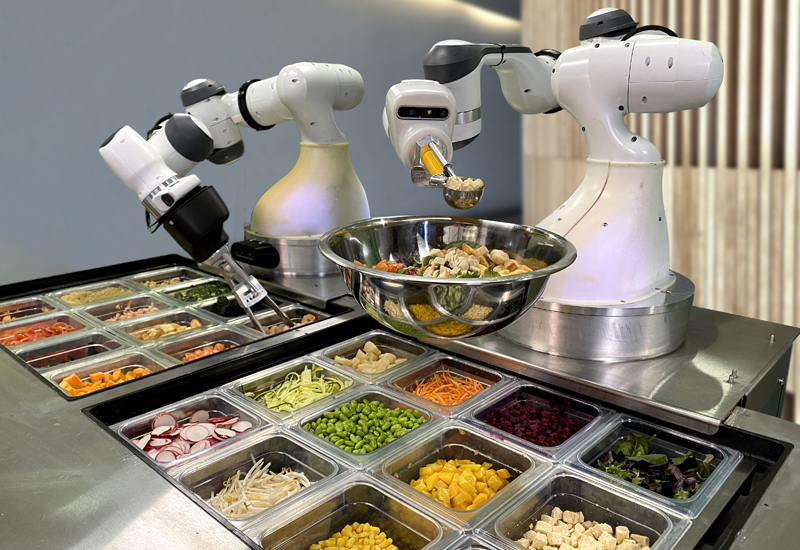
Artificial intelligence (AI) has made remarkable advancements in various fields, including language processing, image recognition, and even recipe generation. While AI-generated recipes may not yet match the creativity and finesse of human chefs, they offer an intriguing glimpse into the capabilities and limitations of machine-generated culinary creations. In this article, we will explore the potential of AI-generated recipes while acknowledging the current challenges and the unique role human expertise plays in the culinary arts.
The Rise of AI-Generated Recipes:
AI-generated recipes have gained attention in recent years, with platforms and algorithms attempting to replicate the art of cooking. By analyzing vast amounts of existing recipes and ingredient combinations, AI models can generate novel recipes based on patterns and trends. This technology has the potential to inspire home cooks, provide new culinary experiences, and even assist professional chefs in exploring innovative flavor combinations.
The Creative Process:
Recipe creation is not merely a formulaic exercise. It involves creativity, intuition, and a deep understanding of ingredients and techniques. Human chefs bring a wealth of culinary knowledge, cultural influences, and personal experiences to their creations. They rely on sensory feedback, such as taste, texture, and aroma, to refine and adjust recipes. AI, on the other hand, lacks the sensory capabilities and subjective judgment that are crucial for the artistry of cooking.
The Limitations of AI:
While AI can generate recipes based on existing data, it often struggles with the nuances of taste, texture, and the subtleties of flavor combinations. The ability to balance flavors, adjust seasoning, and respond to ingredient quality or availability is something that human chefs excel at. Additionally, AI lacks the cultural and emotional understanding that human chefs bring to their dishes, making it challenging for machines to capture the essence of a particular cuisine or to create recipes that evoke specific culinary traditions.
Collaboration between Human and AI:
Rather than viewing AI-generated recipes as a replacement for human creativity, it is more valuable to see them as tools for inspiration and exploration. AI can assist chefs and home cooks by offering alternative ingredient suggestions, proposing unusual combinations, or even helping with recipe scaling. The collaboration between human expertise and AI technology can enhance culinary innovation and lead to unique culinary experiences.
The Importance of Human Expertise:
At the heart of exceptional culinary creations lies the passion, experience, and expertise of human chefs. The art of cooking is a sensory and emotional experience, where chefs use their intuition and knowledge to craft dishes that delight and surprise. Human chefs possess the ability to adapt, innovate, and respond to the ever-changing demands and desires of diners. While AI can provide assistance, it is the human touch that truly elevates a recipe from good to exceptional.
Conclusion:
AI-generated recipes offer a glimpse into the evolving landscape of culinary technology. While they may not yet possess the finesse and creativity of human chefs, they have the potential to inspire and assist in the exploration of new flavor combinations and culinary possibilities. However, it is crucial to recognize that the artistry of cooking relies on the expertise and intuition of human chefs, who bring cultural knowledge, sensory perception, and emotional connections to their creations. The collaboration between human creativity and AI technology holds the promise of expanding culinary horizons, pushing boundaries, and creating extraordinary culinary experiences for all.